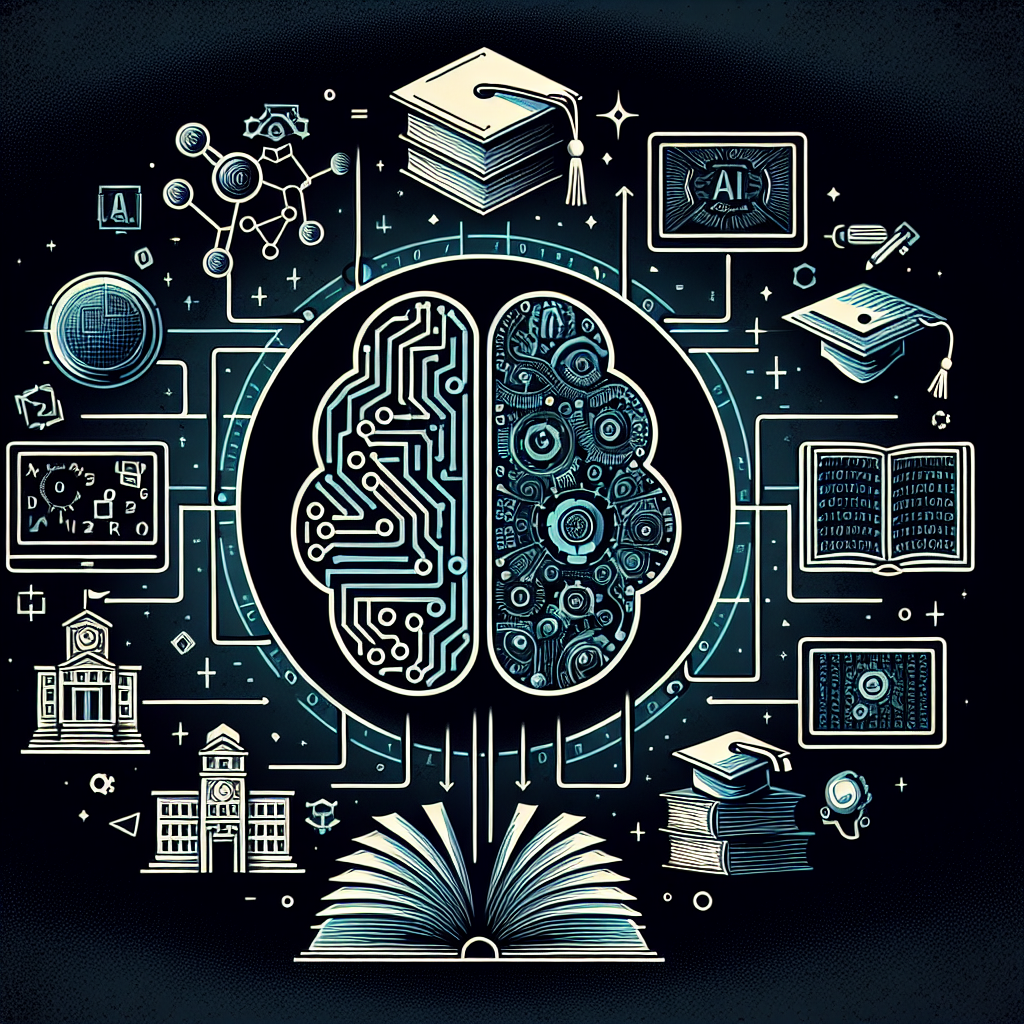Artificial General Intelligence (AGI) is a concept that has been the subject of much speculation and debate in recent years. The idea of creating a machine that can perform any intellectual task that a human can do has captured the imagination of scientists, futurists, and the general public alike. While AGI is still a work in progress, its potential impact on various aspects of society, including education, is already being felt.
In this article, we will explore the ways in which AGI is transforming learning and the future of education. We will discuss the benefits and challenges of integrating artificial intelligence into the educational system, and how it is changing the way students learn and teachers teach. We will also address common questions and concerns about the use of AGI in education, and how it may shape the future of learning.
AGI and Education: A New Frontier
Artificial intelligence is already being used in a variety of ways to enhance the learning experience. From personalized learning platforms to virtual tutors, AI has the potential to revolutionize the way we educate our youth. AGI, in particular, has the ability to take this transformation to the next level by providing students with a truly intelligent and adaptive learning experience.
One of the key benefits of AGI in education is its ability to personalize learning for each individual student. By analyzing a student’s strengths, weaknesses, and learning style, AGI can tailor educational materials and activities to meet their specific needs. This level of customization can help students learn more efficiently and effectively, leading to improved academic performance and a deeper understanding of the material.
Another advantage of AGI in education is its potential to provide real-time feedback and support to students. Virtual tutors powered by AGI can assist students with their homework, answer questions, and provide guidance on how to improve their performance. This instant feedback can help students stay on track and make progress more quickly than traditional teaching methods.
Furthermore, AGI has the capacity to revolutionize the way teachers plan and deliver lessons. By analyzing student data and performance metrics, AGI can help educators identify areas where students are struggling and suggest ways to address these challenges. This data-driven approach to teaching can help teachers better understand their students’ needs and create more effective learning experiences.
Challenges and Concerns
While the potential benefits of AGI in education are vast, there are also challenges and concerns that must be addressed. One of the main concerns is the ethical implications of using AI in the classroom. Questions about data privacy, bias in algorithms, and the impact of automation on the teaching profession must be carefully considered before implementing AGI in education.
Another challenge is the potential for AGI to exacerbate existing inequalities in the education system. If access to AI-powered learning platforms is limited to only certain students or schools, it could widen the achievement gap between affluent and disadvantaged students. Efforts must be made to ensure that AGI is available to all students, regardless of their socioeconomic status.
Additionally, there is the concern that AGI could replace human teachers altogether, leading to a loss of human connection and empathy in the classroom. While AI can certainly enhance the learning experience, it is important to remember the value of human interaction and mentorship in education. AGI should be used as a tool to support teachers, not replace them.
FAQs
Q: Will AGI replace human teachers in the future?
A: While AGI has the potential to automate certain aspects of teaching, such as grading assignments and providing feedback, it is unlikely to replace human teachers entirely. The unique skills and qualities that teachers bring to the classroom, such as empathy, creativity, and critical thinking, cannot be replicated by machines. AGI should be seen as a tool to support teachers in their work, not as a replacement for them.
Q: How can AGI help students with special needs?
A: AGI has the potential to provide personalized learning experiences for students with special needs. By analyzing a student’s individual strengths and challenges, AGI can tailor educational materials and activities to meet their specific needs. Virtual tutors powered by AGI can also provide additional support and guidance to students with special needs, helping them to achieve their full potential.
Q: What are the ethical implications of using AGI in education?
A: The use of AGI in education raises a number of ethical considerations, including data privacy, bias in algorithms, and the impact of automation on the teaching profession. It is important for educators and policymakers to carefully consider these issues and implement safeguards to protect students’ rights and ensure a fair and equitable learning environment.
In conclusion, AGI has the potential to revolutionize the way we educate our youth. By providing personalized learning experiences, real-time feedback, and data-driven insights, AGI can help students learn more efficiently and effectively. However, it is important to address the challenges and concerns surrounding the use of AGI in education, such as ethical implications and potential inequalities. By carefully considering these issues and implementing safeguards, we can harness the power of AGI to create a brighter future for education.

